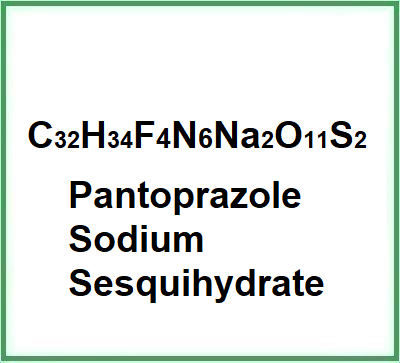![]() pantoprazole sodium sesquihydrate
pantoprazole sodium sesquihydrate
Rating : 8
Pros:
Gastroprotective (1) Anti-inflammatory (1)Cons:
Specific allergy (1)In the scientific literature, two forms of pantoprazole are treated: mono and sesquidrate.Pantoprazole sodium sesquihydrate is used as a proton pump inhibitor, as a potent inhibitor of gastric acid secretion and is widely used for the treatment of gastroesophageal reflux, dyspepsia and peptic ulcer.It also exerts an anti-inflammatory action (1) in ... (Read the full Tiiip)
8 pts from AColumn
| Evaluate | Where is this found? |
| "Pantoprazole sodium sesquihydrate s" about pantoprazole sodium sesquihydrate by AColumn (9336 pt) | 2019-Nov-14 18:14 |
Environmentally Benign and Facile Process for the Synthesis of Pantoprazole Sodium Sesquihydrate: Phase Transformation of Pantoprazole Sodium Heterosolvate to Pantoprazole Sodium Sesquihydrate. n Awas ...
| Read the full Tiiip | (Send your comment) |
| "Descrizione" about pantoprazole sodium sesquihydrate Review Consensus 8 by AColumn (9336 pt) | 2019-Nov-17 10:45 |
In the scientific literature, two forms of pantoprazole are treated: mono and sesquidrate.Pantoprazole sodium sesquihydrate is used as a proton pump inhibitor, as a potent inhibitor of gastric acid se ...
| Read the full Tiiip | (Send your comment) |
Read other Tiiips about this object in __Italiano (2)
Component type: Chemical Main substances: Last update: 2019-11-14 17:19:40 | Chemical Risk: |


